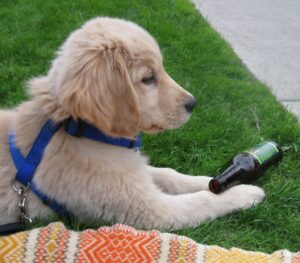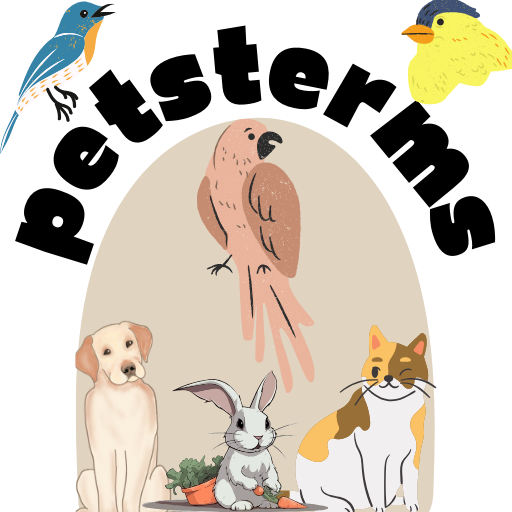
Bringing a puppy into your home is like adding a new family member. Puppies bring joy, love, and energy that can transform any home into a lively space. But to truly thrive, puppies need a safe, nurturing, and stimulating environment—something that the concept of “Little Lives Pets” embodies. Here’s a guide to creating an ideal home setup for your puppy, so they feel secure, loved, and free to explore their new world.
The Joy of Bringing a Puppy Home
Adopting a puppy is a magical experience filled with excitement and new discoveries. Whether they’re bouncing around, sleeping in funny positions, or offering a tiny paw for you to shake, every moment with a puppy is heartwarming. But puppies need more than just playtime and cuddles—they need a structured, safe home that will help them grow into happy, healthy dogs.
When you bring a puppy home, you’re not just providing food and shelter. You’re creating an environment that helps them develop trust, independence, and confidence. It’s a rewarding journey, and with some careful planning and effort, you can build a “Little Lives Pets” sanctuary that meets your puppy’s every need.
Setting Up Your Puppy’s Safe Space

Your home is filled with everyday items that might seem harmless but could pose risks to a curious puppy. Puppies have a knack for getting into things, so creating a secure and designated area for them is a great first step.
- Choose the Right Space: Designate a specific area in your home where your puppy will sleep, eat, and play. This could be a cosy corner in the living room or a small room where they can explore without getting into trouble.
- Puppy-Proof the Area: Make sure the area is safe by removing anything that could be harmful, like small objects, electric cords, and anything sharp. If possible, set up a small playpen to keep them contained when you’re not around.
- Comfortable Bedding: Puppies need plenty of rest, so invest in a soft, washable bed. Make sure the bed is the right size for your puppy—it should be cozy but with enough room to stretch.
- Accessible Food and Water: Place food and water bowls nearby, ensuring they’re shallow and easy for your puppy to reach. Puppies need constant access to fresh water, especially if they’re active.
Essentials for a Happy Puppy Home
To create a space that enriches your puppy’s life, there are some essentials that will support their mental and physical development:
- Toys for Play and Learning: Puppies are full of energy, so have a variety of toys on hand, including chew toys, squeaky toys, and puzzle toys that challenge their minds. Interactive toys are particularly great for keeping them entertained and mentally stimulated.
- Teething Toys: Puppies go through a teething phase, just like human babies, and they’ll chew on anything they can find. Provide safe teething toys to save your furniture from little teeth marks.
- Crate for Training: Crate training is beneficial for teaching boundaries and making your puppy feel safe in a smaller space. Make the crate inviting with soft blankets, and encourage your puppy to see it as their personal den, where they can retreat and rest.
- Leash and Collar: A comfortable collar and lightweight leash are must-haves for training and socializing your puppy. Start with short training sessions to get them accustomed to wearing the leash without feeling restricted.
Feeding Your Puppy Right

A puppy’s diet is crucial to their growth and development. They require a higher calorie intake than adult dogs, as well as the right balance of protein, fats, vitamins, and minerals.
- Quality Puppy Food: Choose high-quality puppy food that is specifically formulated for their needs. Look for options with real meat as the first ingredient and minimal fillers or artificial additives.
- Set a Feeding Schedule: Puppies do well with multiple small meals throughout the day. A common feeding schedule is three meals a day, which helps maintain their energy levels and prevents overeating.
- Avoid Table Scraps: While it may be tempting to share a snack with your puppy, it’s best to avoid giving them human food. Certain foods, like chocolate, onions, and grapes, are toxic to dogs.
Socializing and Training for a Well-Rounded Puppy
Socialisation is one of the most important aspects of a puppy’s development. Exposing them to new people, animals, and environments will help them grow into a friendly, well-adjusted dog. Training is equally essential, as it teaches boundaries and behaviors that will make life easier for both of you.
- Start Early: The sooner you start socializing your puppy, the better. Introduce them to various situations, such as meeting new people or going on short car rides, in a calm and positive way.
- Positive Reinforcement Training: Use treats, praise, and affection to reward good behavior. Puppies respond well to positive reinforcement, so celebrate every success, no matter how small.
- Basic Commands: Teach essential commands like “sit,” “stay,” “come,” and “leave it.” These are useful for keeping your puppy safe and instilling discipline from an early age.
- Socialize with Other Dogs: Arrange puppy playdates or bring your puppy to a dog park (once they’re fully vaccinated). Playing with other dogs teaches them social skills and reduces the chance of aggression or fear in adulthood.
Grooming Essentials for a Healthy Puppy
Grooming isn’t just about keeping your puppy looking cute—it’s essential for their health and well-being. Regular grooming helps you spot any issues early, like skin problems or parasites, and it keeps their coat shiny and clean.
- Brush Regularly: Puppies shed, and brushing helps remove loose fur while keeping their coat healthy. Brushing is also a bonding activity that helps puppies feel comfortable with being handled.
- Bathe When Needed: Bathing your puppy once a month or as needed is usually enough to keep them clean. Use puppy-safe shampoo to avoid drying out their skin, and always rinse thoroughly.
- Nail Trimming: Long nails can be uncomfortable for puppies and even lead to health issues. Trim their nails every few weeks, or as needed, and use lots of treats and patience if they’re nervous.
- Dental Care: Dental health is often overlooked but crucial. Start brushing your puppy’s teeth with a dog-safe toothpaste to prevent plaque buildup and ensure they have a healthy mouth as they grow.
The Power of Routine and Structure
Puppies thrive on routine, and having a structured schedule can help reduce anxiety and make training easier. A regular schedule for feeding, potty breaks, playtime, and sleep will help your puppy understand what to expect and build trust with you.
- Establish a Potty Schedule: Take your puppy out at consistent times each day, like first thing in the morning, after meals, and before bed. Reward them for going outside to reinforce the behavior.
- Sleep Schedule: Puppies need a lot of sleep to support their growth. Allow them plenty of rest during the day and keep bedtime consistent so they learn when it’s time to wind down.
- Set Rules Early: Decide on household rules from the beginning, like whether the puppy is allowed on furniture, and be consistent. Mixed signals can confuse a puppy and make training more challenging.
Making Your Home Feel Like Their Home
Beyond meeting physical needs, it’s important to create an emotional connection with your puppy. They’re naturally social animals and need to feel loved and accepted. Spend quality time with your puppy daily, playing, cuddling, and simply enjoying their company. This bond will grow stronger over time, and your puppy will come to see you as their trusted guardian and friend.
Finding the Right Balance of Play and Rest
Puppies are bundles of energy, but they also need plenty of downtime. A balanced approach to play and rest is essential for their health.
- Interactive Play: Playtime is a great opportunity to bond and exercise your puppy. Games like fetch, tug-of-war, and hide-and-seek stimulate their mind and satisfy their natural instincts.
- Quiet Time: Encourage your puppy to rest in their crate or bed when they’re tired. Avoid overstimulating them with too much play, as puppies can get cranky if they don’t get enough rest.
How to Handle Puppy Challenges with Patience

Raising a puppy isn’t always smooth sailing. They may have accidents, chew things they’re not supposed to, or bark at everything they see. Patience and consistency are key to handling these challenges.
- Accidents Happen: Potty training takes time, so be prepared for occasional accidents. Stay calm and redirect your puppy to the right place instead of punishing them.
- Chewing Phase: If your puppy chews on something they shouldn’t, redirect them to a toy or chew treat. Praise them when they use their toys instead of household items.
- Barking: Puppies often bark out of excitement or fear. Try to understand what’s triggering the barking and respond calmly to help them feel safe.
Celebrating Your Little Life Companion
Creating a warm, loving, and safe home for your puppy is a rewarding experience. As they grow, you’ll watch them develop unique personalities and see the world through their innocent eyes. With a little care, patience, and a whole lot of love, your “Little Lives Pets” setup will become a happy home where your puppy can thrive.
By taking these steps, you’re not just raising a pet; you’re giving your puppy a lifelong gift of love and security. Every wag of their tail and every sloppy puppy kiss will remind you that you’re not just their owner—you’re their family. Enjoy every moment with your furry little friend, and cherish the bond you’re building together.

